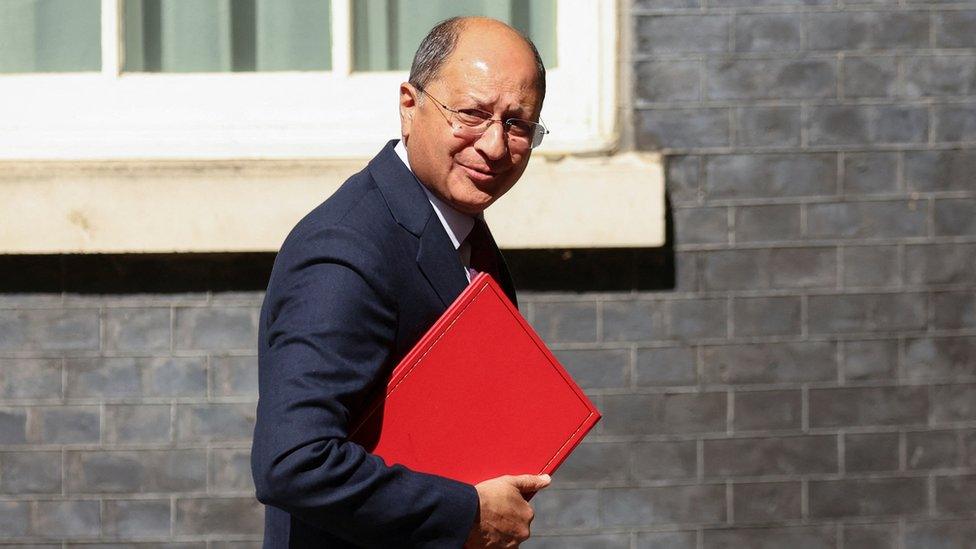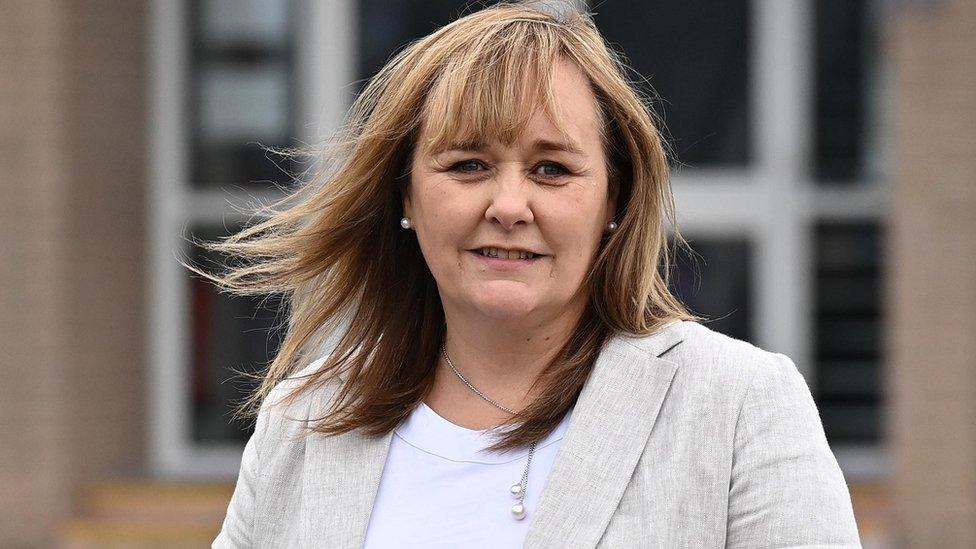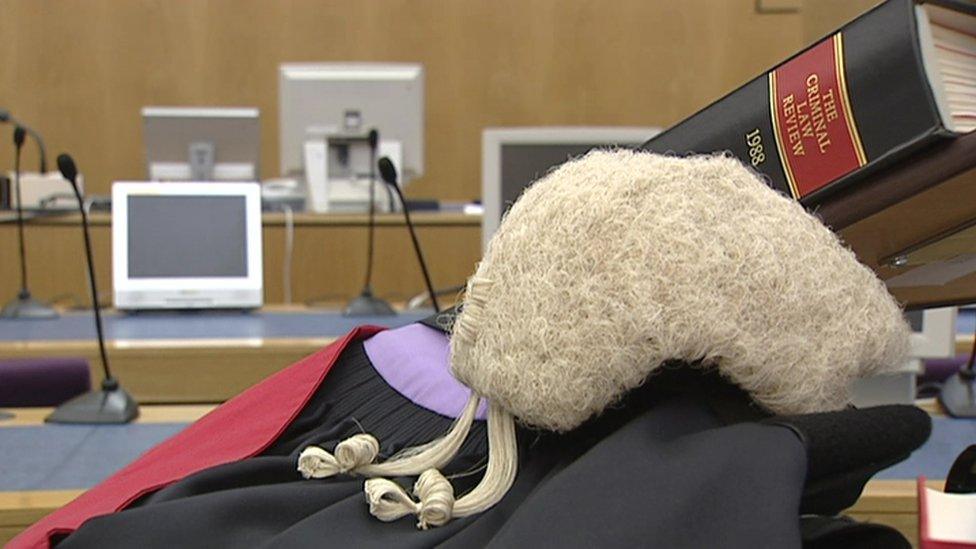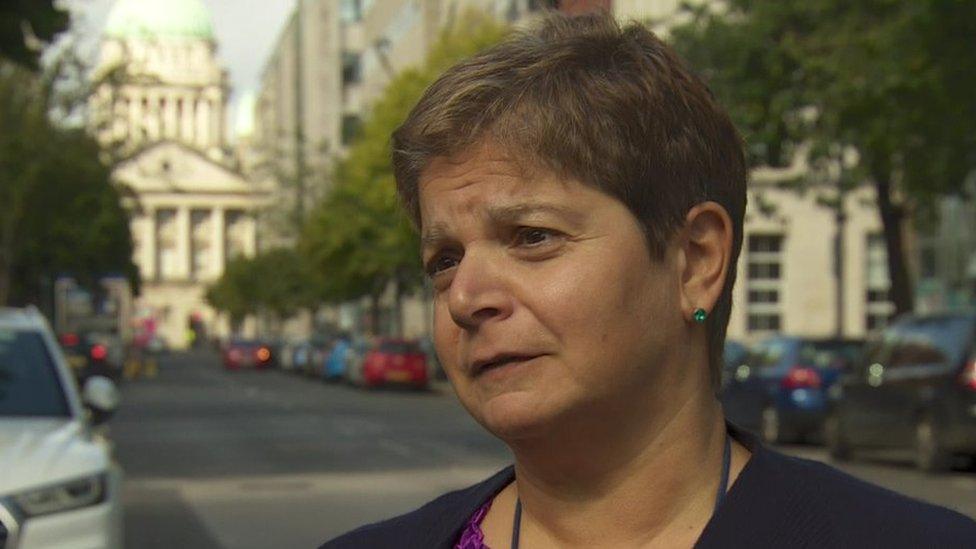Sex education in schools could be made compulsory by NI secretary
- Published

Mr Vara said he had a legal duty to act on the recommendations of a UN committee report
The Northern Ireland secretary says he will consider introducing compulsory relationship and sex education (RSE) in schools if the Department of Education does not.
BBC News NI has learned that Shailesh Vara has written to the department to inform them of his intention to act.
Mr Vara said he had a legal duty to act on the recommendations of a United Nations (UN) committee report on RSE.
It said RSE in Northern Ireland should be compulsory and comprehensive.
It said it should cover topics such as access to abortion and prevention of early pregnancy.
In response, the department said Education Minister Michelle McIlveen had written to the Northern Ireland secretary inviting him to meet her to discuss the issue.
In a statement to BBC News NI, a Department of Education spokesperson also said that RSE in schools in Northern Ireland "already provides opportunities for young people to learn about the implications of sexual maturation and the emotional, social and moral implications of early sexual activity".
Each school in Northern Ireland is currently required by the department to develop its own policy.
However, what is actually taught to pupils about RSE is a matter for each school to decide based on their school ethos.
That approach has previously been criticised by some experts who have said it leads to "different and inconsistent learning experiences" for pupils.
Retired judge Sir John Gillen has also recommended that age-appropriate relationship and sex education should be taught to schoolchildren from primary one.

Shailesh Vara said he has a legal duty to act on the recommendations of a United Nations committee report
Children's commissioner Koulla Yiasouma also recently called for a compulsory RSE curriculum similar to other school subjects.
Mr Vara has written to the Department of Education to tell it he has a legal duty to act on RSE as the result of legislation introduced in Westminster in 2019.
That has already led to new laws on abortion being introduced in Northern Ireland.
Mr Vara told the department it also requires him to implement other recommendations on RSE contained in a 2018 UN report from the Committee on the Elimination of Discrimination Against Women, (CEDAW).
It stated that the UK had been breaching the rights of women in Northern Ireland by limiting their access to abortion services.
But the CEDAW report also said that young people were "denied the education necessary to enjoy their sexual and reproductive health and rights".
It said RSE was "under-developed or non-existent owing to the school's discretion to implement curriculum contents according to its values and ethos".
In a statement to BBC News NI, the Northern Ireland Office (NIO) said Mr Vara was under a legal duty to implement the recommendations of the CEDAW report.

Education Minister Michelle McIlveen has previously defended how relationship and sex education is taught in schools
"In relation to relationship and sexuality education, the secretary of state is under a duty to ensure that adolescents have access to age-appropriate, comprehensive and scientifically accurate education on sexual and reproductive health and rights, including prevention of early pregnancy and access to abortion," the NIO said.
"The Department of Education is responsible for taking forward this recommendation.
"It is our strong preference that the Department for Education ensure CEDAW compliant relationship and sexuality education is made a compulsory component of the curriculum.
"If the Department of Education is not prepared to implement the CEDAW recommendation, the secretary of state will consider using his powers to intervene."
Ms McIlveen has previously defended how relationship and sex education is taught in schools.
Officials from the Department of Education have said that more prescriptive RSE could bring schools in Northern Ireland into conflict with parents and governors.
In a statement in response to Mr Vara's letter, a department spokesperson said it recognised the importance of RSE in the curriculum.
"In Northern Ireland, RSE already provides opportunities for young people to learn about the implications of sexual maturation and the emotional, social and moral implications of early sexual activity," they said.
"The statutory curriculum is supported by a range of non-statutory resources which are available on the Council for the Curriculum, Examinations and Assessment's RSE hub.
"Correspondence from the secretary of state on this issue is being considered."
Related topics
- Published13 March 2021

- Published22 March 2021

- Published27 January 2022
